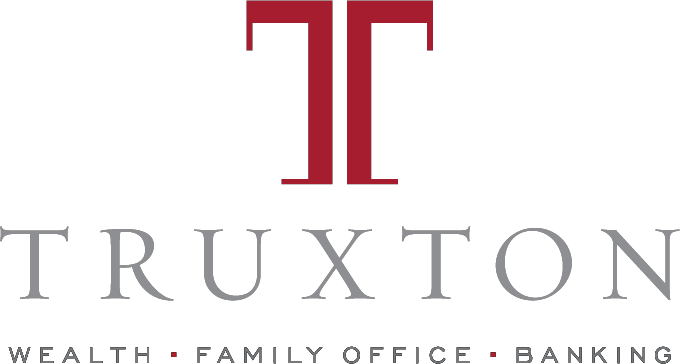Searching for the Peak?
- We are thankful for and proud of the medical professionals, members of the armed services, the first responders and all of those performing critical services for the general public during these challenging times.
- The COVID-19 pandemic has resulted in a tremendous amount of human tragedy and has resulted in a severe and swift decline in global economic activity.
- The US monetary policy response has been swift and on a larger scale than the response to the Global Financial Crisis. Credit conditions have stabilized coming into April.
- The CARES act will provide significant forms of relief for individuals and businesses impacted by the pandemic.
- We are dedicating our efforts to being sure the portfolios are well-positioned to weather the storm and for the recovery that will come.
Since our March 12 update, COVID-19 has become all-consuming. Most of us are adapting to the “Safer at Home” protocols in place nationwide or more intensive isolation programs established regionally. We hope that you are healthy and safe. We know you are probably not that happy. Nobody is. The “big virus”, as my cousin aptly branded COVID-19, stinks. There will be fancier words and concepts used to describe the massive displacement and uncertainty we are collectively experiencing, but “stinks” pretty much sums it up. Deaths are rising rapidly; hardworking medical professionals are stretched to the limit in dangerous conditions; 10 million people lost jobs in the past two weeks; and small and large businesses alike are contending with a tremendous amount of uncertainty. A health crisis became a credit crisis almost immediately as businesses and individuals rushed to secure cash for obligations that will continue despite the sudden curtailment of revenue. Sophisticated economies are not built to stop.
We live in a web of credit. Beyond specific debentures to banks or bondholders, we trust our customers, employers and suppliers in numerous ways. They, in turn trust theirs and so on. It is far more efficient to settle in batches rather than going to exchange cash with everyone every day. It works because the revenue rarely stops. In fact, I can’t think of a single example beyond microcosms in areas struck by natural disaster where economic activity suddenly stops. Credit is like oxygen to our economy. The credit seizure that we saw in March was the fallout of almost everyone simultaneously reevaluating what they owed and what they were due. The Federal Reserve (the Fed) stepped in quickly and on a larger and more far reaching scale than their response to the Global Financial Crisis of 2007 and 2008. Within two weeks, the Fed had cut rates from 1.5% to 0%, restarted bond buying across maturities and even issuers (known as quantitative easing) and made pretty much every short-term liquidity instrument under its control available to banks and other institutions. Thus far, the Fed’s intervention is working. Since the Fed “opened the spigots” yields and credit spreads have begun to behave in a much more orderly fashion. The Federal Government followed with the CARES act, a massive authorization to pump over $2.28 trillion into the US economy to address COVID-19 treatment specifically as well as to contain the collateral economic damage. The CARES act will provide one-time stimulus checks up to certain income limits, enhanced and expanded unemployment benefits, loans to distressed businesses and various forms of small business relief. In total, the CARES act represents nearly 11% of annual US GDP.
The sharpest decline in equity values occurred during the heat of March’s credit crunch. What recovery we have seen so far has corresponded with the more orderly behavior and functioning of the capital markets in general. The S&P 500 is still down almost 20% year-to-date because the duration of the shutdowns and the prevalence of the disease are not yet known. First and Second Quarter GDP are going to be shocking but we know it’s coming. Right now, people can’t participate in activities that account for a significant proportion of US GDP such as travel, entertainment and dining out. Shopping is harder and most spending is focused on necessities. Recent reports from Target and Dollar Tree basically said: business is great, but it isn’t very good. The finer things in life drive a lot of economic activity and even more employment.
We do know that social distancing will end at some point, but we don’t know when and the current forecasts keep extending further into the future. When it does, the behavior of US (and global) consumers is uncertain. Over time, we believe that US consumers will get back to their usual activities; however, we don’t know how much damage will have been done. Past pandemics have seen “V-shaped” recoveries with the primary interruption being supply. COVID-19 started off as a risk to supply and has become an impediment to demand. Many US customers are trying to cancel orders rather than expedite them. If the social distancing orders (or preference) carries into the summer months, households and businesses will have significant repair work to do on balance sheets and cash flow before returning to business as usual.
Our best guess is that equities will track the growth in disease cases until there is evidence that the curve is flattening with slowing growth of new cases and clear capacity to deal with the ones that present themselves. There are a lot of people working hard at significant personal risk to help us reach that point. We are grateful for their services and admire their bravery.
While these are scary times, we believe that investments should be treated the same. Investment allocations should accurately reflect an investor’s willingness and ability to take risk. This tolerance should not move significantly as the environment changes. Equities are less expensive now than they have been in several years. Earnings estimates will fall, but then earnings will recover and are likely to grow in the time beyond that recovery. Performance will follow earnings. We believe clients should maintain a customized allocation that suits personal situations. We are dedicating our efforts to being sure the portfolios are well-positioned to weather the storm and for the recovery that will come. We look forward to discussing recent portfolio changes with you.
We are honored by the faith you put in Truxton and grateful for the opportunity to serve you. Please stay safe and healthy and we look forward to brighter times.

